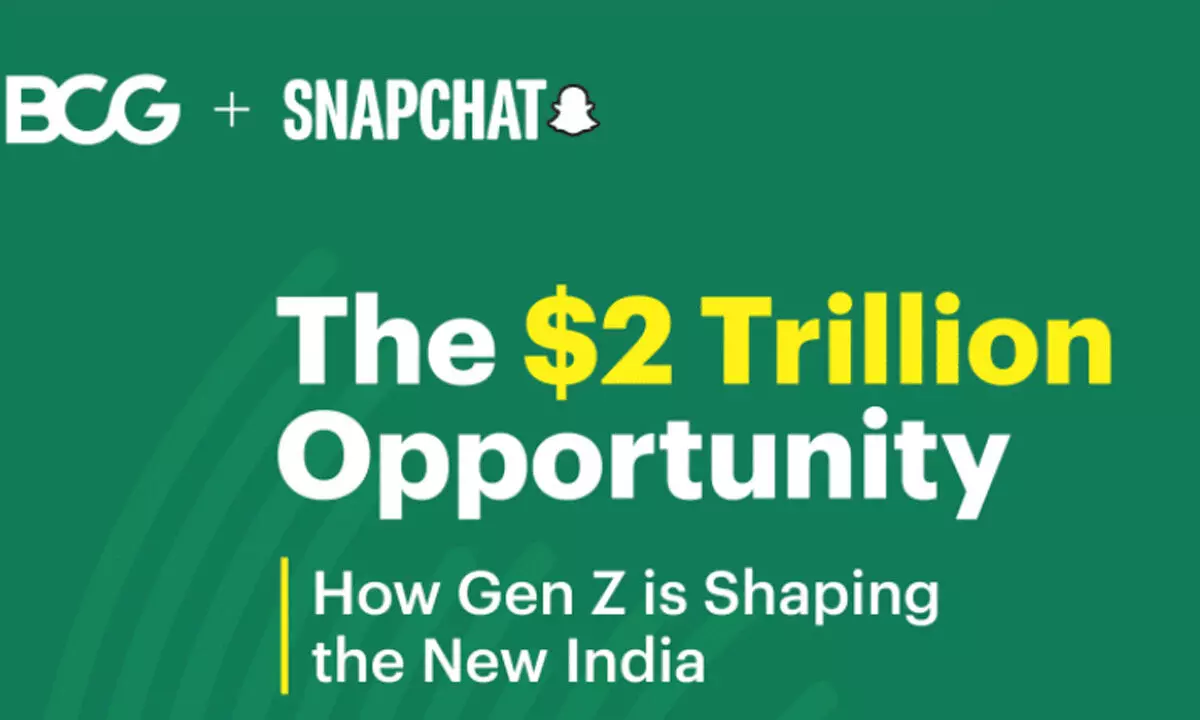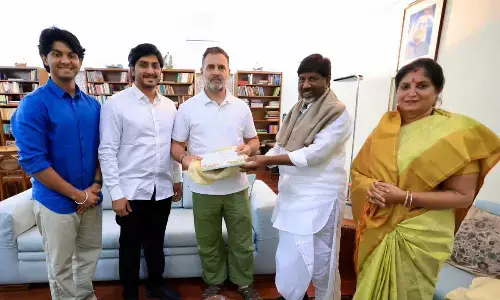The $2 Trillion Opportunity: How Gen Z is Shaping the New India

Highlighting Gen Z’s Distinctive Spending Power Across Multiple Categories
With a population of 377 million, Gen Z is now the largest generation ever to live in India. While they’re often perceived as teenagers, Gen Z is far from a homogeneous group. Their immense purchasing power and unique perspectives, behaviours demand the attention of businesses and marketers alike.
To separate fact from fiction and gain a deeper understanding of this influential generation, Snap Inc. partnered with Boston Consulting Group (BCG) to develop a report on Gen Z titled "The $2 Trillion Opportunity: How Gen Z is Shaping the New India".
This expansive research offers new perspectives into Indian Gen Z’s distinctive spending power across multiple categories, that no other report has explored in the past. The report also delves into uncovering unique insights into how they engage, influence, shop, and spend—shaping the future of India's economy.
Top key headlines from the report:
Collective spending power reaches an impressive $860 billion, surging to $2 trillion by 2035.
In 2025, Gen Z’s direct spends will amount to $250B.
1 of 4 Gen Z are already in the workforce, by 2025 every 2nd Gen Z will be earning.
Gen Z buys as many times as Millennials and is 1.5 times more likely to research their purchases.
45% of businesses recognize Gen Z’s potential, but only 15% take action to actively address them indicating a huge opportunity.
With 90% of its daily active users aged 13-34, Snapchat is the undisputed voice of young people in India.
Commenting on the findings from the report, Pulkit Trivedi, Managing Director, India, Snap Inc., said, “India is a young nation with a 377 million Gen Z population which will shape the future of India's growth in the next two decades. Gen Z will be the biggest contributor to India's consumption growth driving $ 1.8 Trillion worth of direct spend by the year 2035. In partnership with the Boston Consulting Group we are excited to share deep insights on the economic potential, values and shopping behaviour of Gen Z in India. As a platform that serves the Gen Z audience, we look forward to working with brands and businesses to harness this growth potential.”
"Our research evaluated the substantial impact of Gen Z on consumption in India. Gen Z is already driving 43% of India’s consumer spending. Their influence is not limited to select categories – it cuts across categories ranging from fashion, eating out, to automobiles and consumer durables. It is important for marketers to take note that this generation is driven by unique values and beliefs and therefore have distinctive purchase behaviors, however we noticed that only 15% of brands we spoke to are actively taking steps to tap into this opportunity. For businesses, understanding and authentically engaging with Gen Z isn't just good to have; it's necessary for winning today and will be imperative for survival tomorrow.” said Nimisha Jain, Senior Partner and Managing Director at BCG India.
A Powerhouse Driving Nearly Half of India’s Total Consumption
Gen Z isn't just influencing the market; they're redefining it. Their collective spending power reaches an impressive $860 billion, constituting 43% of the country’s total consumption. This dynamic cohort is impacting significant spending across categories such as 50% of total spending on footwear, 48% on dining, 48% on out-of-home entertainment, and 47% on fashion and lifestyle. They are poised to play an increasingly vital role with their spending power projected to reach an astounding $2 trillion by 2035.
Gen Z's Direct Spending Power to Reach $1.8 Trillion by 2035
One in four Gen Z is already part of the workforce, meaning this generation wields a total spending power of $860 billion. However, the way the spending is distributed shows that currently, out of Gen Z’s total spending power of $860 billion, approximately $200 billion comes from direct spending—money they earn and spend themselves—while $660 billion comes from influenced spending, which includes purchases influenced by their recommendations or preferences. By 2035, these figures are expected to change dramatically, with direct spending projected to reach $1.8 trillion, implying that every second rupee of consumer spend in 2035, will be driven by Gen Z.
On average, 70% of Gen Z Rely on Their Inner Circle for Guidance and Love Sharing Updates
Often misunderstood as a detached cohort, Gen Z is deeply rooted in authenticity and meaningful connections. About 70% consider their inner circle— composed of close friends and family—their primary guides - actively sharing details of their day, major concerns in their life and seeking guidance on key choices such as what/where to buy, what content to watch among others. 8 of 10 Gen Zers take inputs from their close friends on what/where to buy in shopping.
With a strong preference for visual content, nearly 80% of Gen Z rely on images, GIFs, and immersive visuals to express themselves and connect with their circle. This group cares deeply about demonstrating their authenticity to those they love, and prefer to express themselves through visual sharing. This strong bond highlights their desire for connection and the importance they place on seeking input from those they trust.
77% of Gen Z's Desire for Immersive Visual Is Driving Trends Like 'Shopcializing’
Gen Z care more about immersive visuals than the generation before them, with 77% of this cohort find using augmented reality and interactive visuals more engaging, demonstrating a greater need for brands to create immersive content. They’re all about “shopcializing” — sharing shopping experiences with their inner circle via photos or video calls. This “phygital” blend of online and offline shopping is so seamless that one out of two Gen Z are likely on the phone checking wish lists or creator pages online while in-store - far surpassing the 32% of millennials.
When it comes to brands, this youth generation is all about trends, not traditional loyalty. They’re 1.7 times more likely to choose trending styles when shopping over brands, with 72% of Gen Z shoppers turning to creators’ social channels as their go-to for shopping inspiration.
45% of Businesses Recognise Gen Z’s Potential, But Only 15% Take Action
Despite the undeniable influence of Gen Z in India, there exists a significant disconnect between recognition and action. While 45% of businesses acknowledge Gen Z's potential, only 15% have actively leveraged these insights—a gap that presents brands with a prime opportunity to forge deeper connections with the generation shaping India's consumer future.
To capitalise on this opportunity, brands and marketers should focus on five key strategies:
Rapidly innovate to stay on trend.
Integrate social interaction throughout the shopping journey.
Provide visually immersive experiences—online and offline.
Create seamless omnichannel purchase pathways.
Engage with the right influencers in the right way.
Link to the report: https://www.bcg.com/publications/2024/india-the-2-trillion-opportunity-how-gen-z-is-shaping-the-new-india








